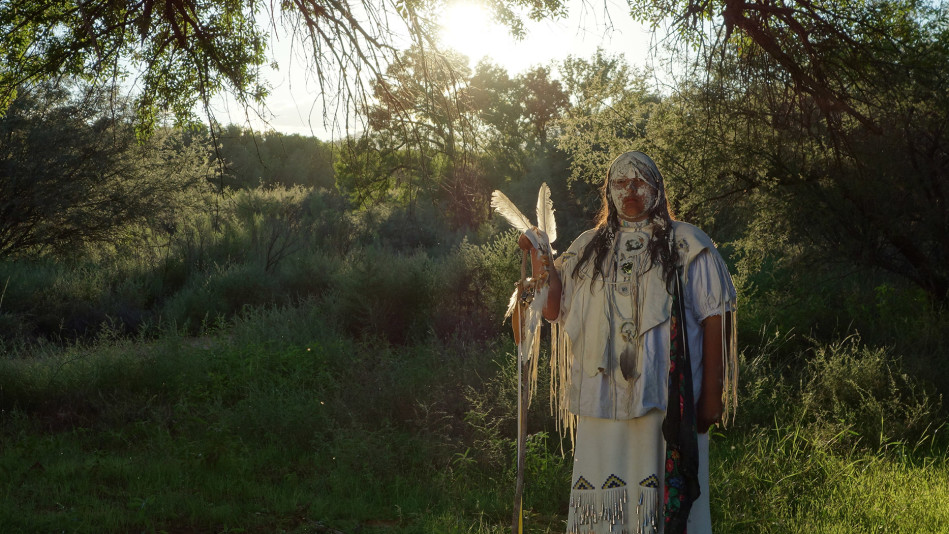Halfway through Oprah Winfrey’s grand new series exploring the religions of the world, there are mixed reactions to its aims and impact.
On Sunday, as the show was about to launch, Diana Butler Bass wrote in the Washington Post:
At a time when many people in Western countries criticize religion as hypocritical, divisive or dangerous, and while large numbers are rejecting religion altogether, Winfrey’s project is a worthy reminder to viewers that religion can heal, restore and transform — and not only fracture. For this reason alone, the show “Belief” deserves respectful attention as it provides a much-needed alternative narrative to the increasing public disdain of faith.
More than that, Bass comments that the series does not focus on traditional religious authorities, but uses the stories of individual believers to illustrate their own religious affiliations.
Across the planet, people are taking responsibility for their own versions of meaning and, in the process, are remaking faith in ways that are more inclusive, more personal, more connected to the natural world and more attentive to their community.
“Belief” narrates this often-ignored but startling story: The age of top-down religion is over. That age is being replaced by an age in which even people who faithfully maintain distinctive religious identities are engaging in do-it-yourself spiritual journeys that often lead in remarkably similar directions of love, healing and justice toward a God (or gods) close at hand.
Bass sees this as a return to the roots of belief:
The shift toward spiritual democracy is changing the actual nature of belief. For the past few centuries, the word “belief” has, in English at least, become shorthand for “opinion about.” So religious beliefs are understood by many contemporary Americans and Europeans to be what they consider increasingly dubious opinions about God and salvation that are taught by authorities they do not trust.
With the move toward personal engagement with faith, the do-it-yourself revolution of religion, the word “belief” is returning to an older connotation of the word. Before “belief” came to mean “opinion,” it typically referred to devotion or trust. It was an experiential word, and not a philosophical one, that indicated what a “believer” held dear or loved. “Belief” was a disposition of the heart.
But Joel J. Miller calls this wholehearted embrace of the individualist approach “sloppy”:
Not only does this approach disregard what various religions and traditions say about themselves, it elevates the individual over them, who now arbitrates for himself what’s true, what’s good, what’s beneficial, and so on. …
This is not a return to an older sense of belief. It’s negating that older sense and replacing it with whatever tickles you today.
Rod Dreher goes a lot further in his critique at The American Conservative website. He gives his position away with his title, “The Great Oprahstasy”:
The take on world religion endorsed by DBB, and imputed by her to Oprah, is, of course, apostasy. It is the seductive self-worship of Moralistic Therapeutic Deism gone global. It is a greater enemy to authentic Christianity than anything the State may conceivably concoct. If you want to know what the fiercest foe of orthodox religion sounds like, don’t read Richard Dawkins or the New Atheists; instead, read that Diana Butler Bass column.
Jonathan Merritt, writing at the Atlantic, recognizes Oprah’s reputation for “squishy spirituality,” but writes that
Belief allows the message and core tenets of every religion to shine through in a way that honors them while remaining honest …
Often, the only information believers receive about other faiths comes from religious leaders within their own tradition. This information may be riddled with myths, or border on propaganda. Belief provides a stage on which each religion can make its best case and be considered on its merits.
His conclusion?
It should not be missed. Believe me.
The show airs nightly all this week on the OWN channel (the Oprah Winfrey Network). I will confess that I have not yet watched any of the documentary series, but the range of reactions intrigues me. Have you seen it? What is your response to the show, and to its critics?
Photo credit: Episode 4, “Change is gonna come,” via http://www.oprah.com/

